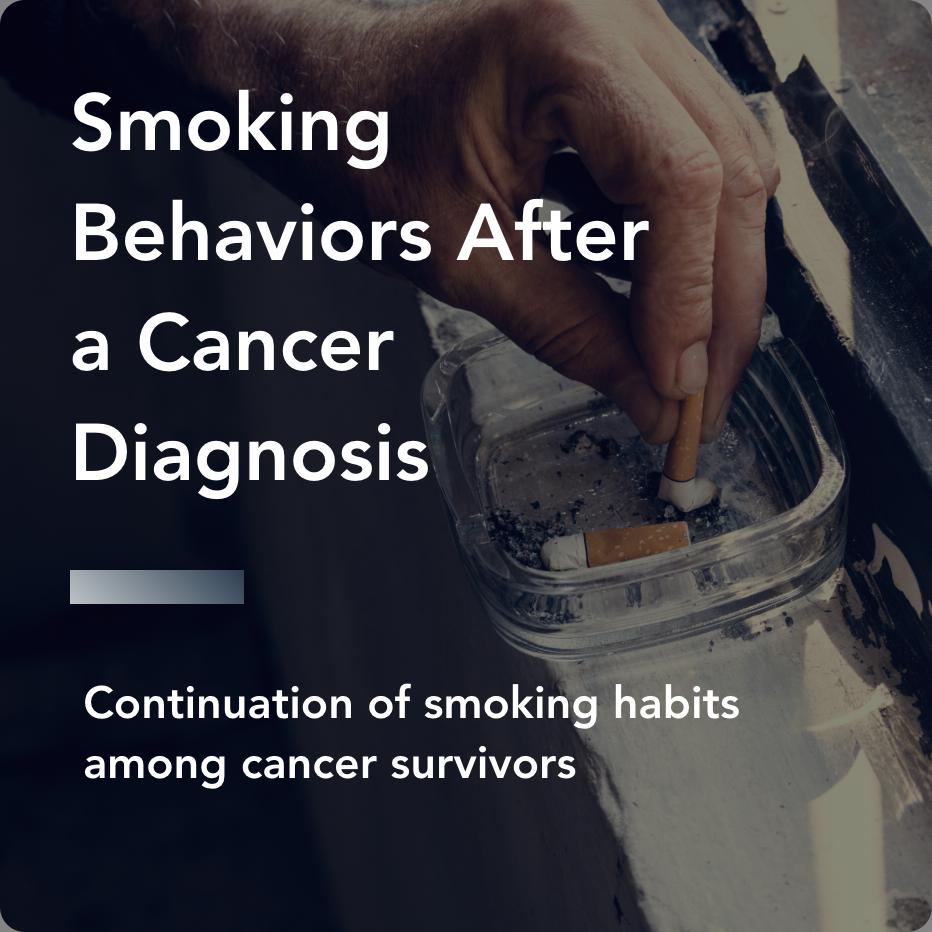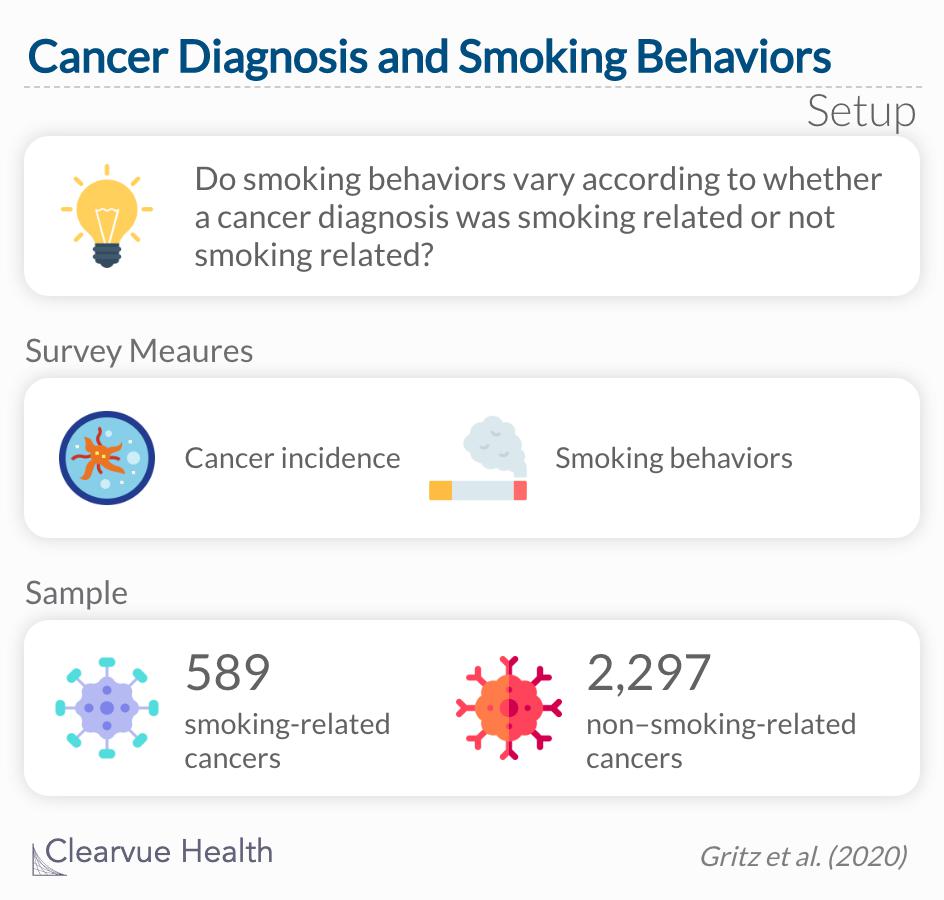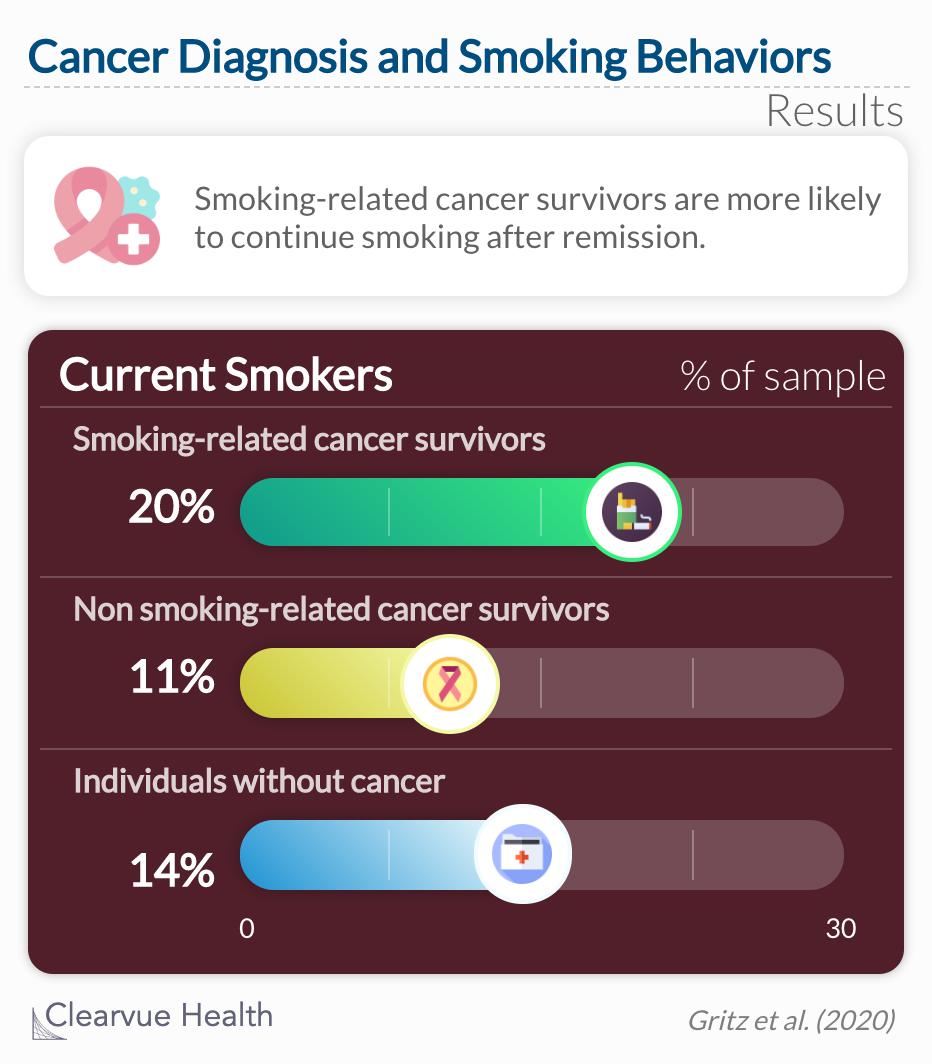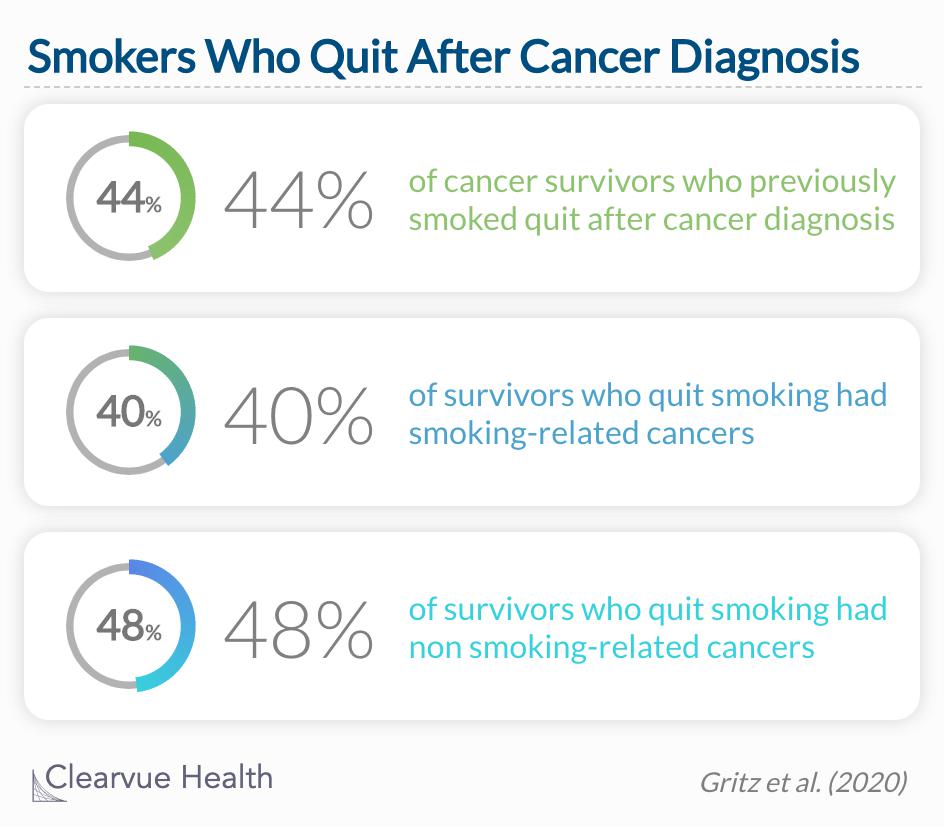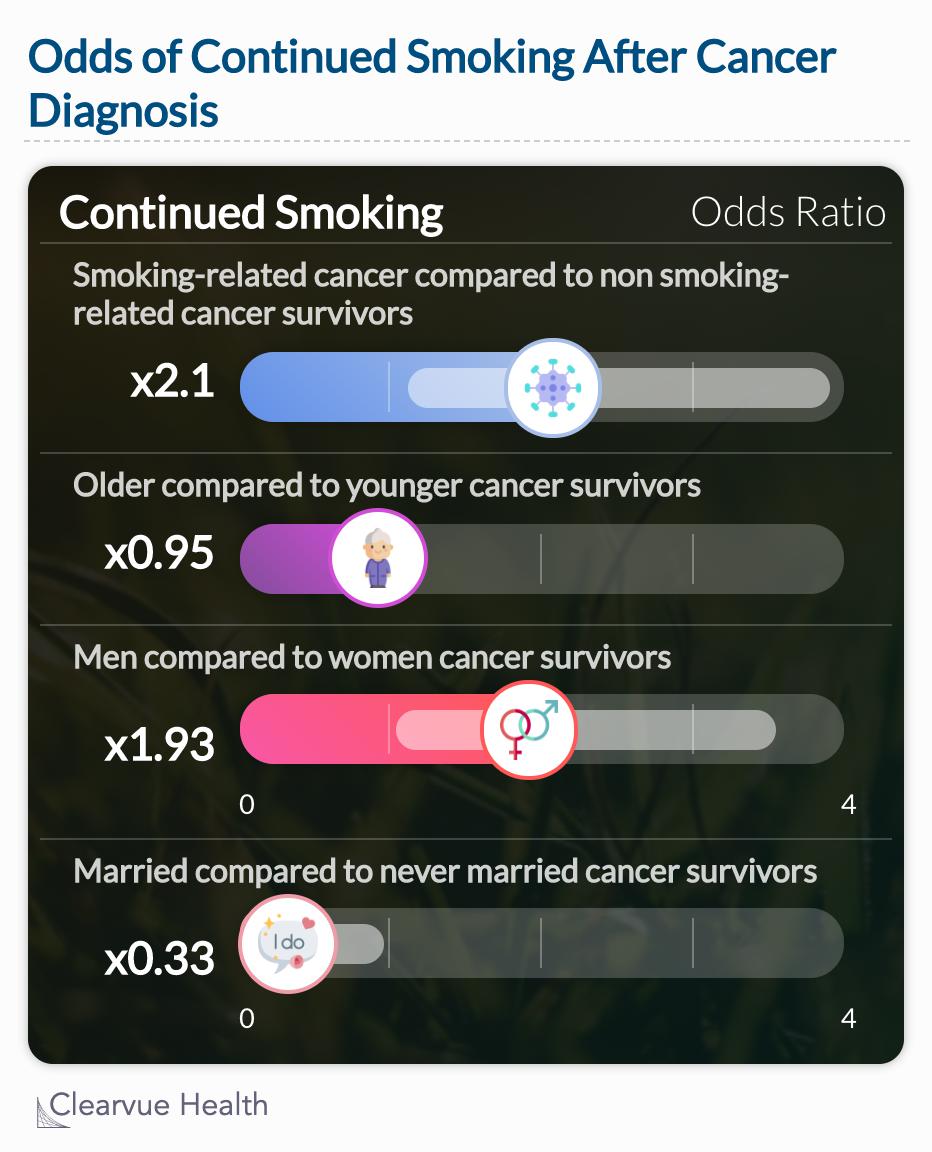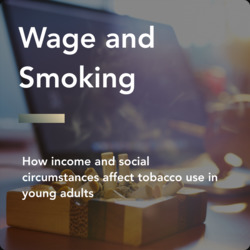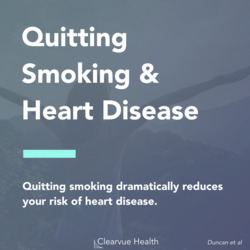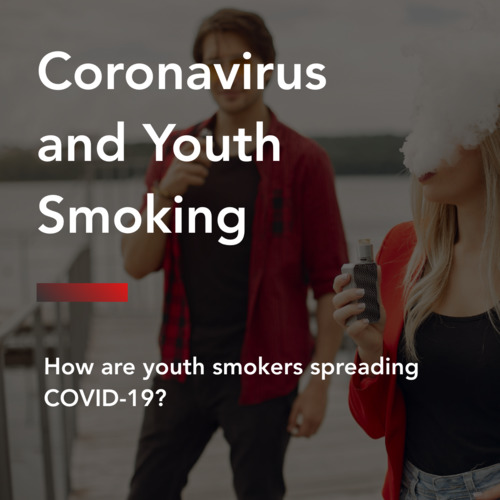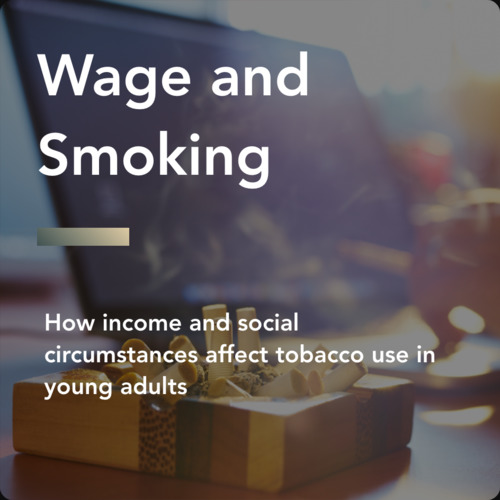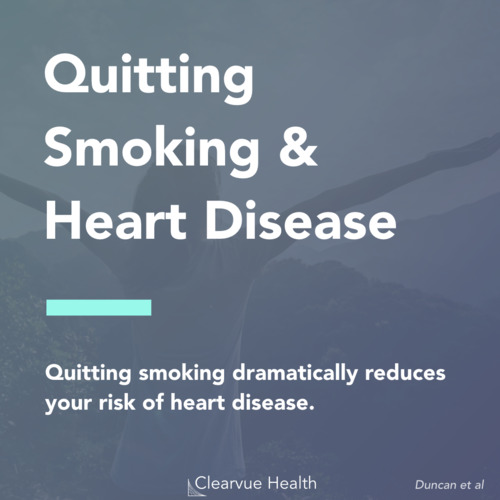smoking behaviors after a cancer diagnosis, continuation of smoking habits among cancer survivors
We have known for a long time now that smoking can greatly increase your risk of certain cancers including oral and lung cancer. Cigarettes are also tied to heart conditions, respiratory diseases, and diabetes. Most public health efforts are aimed at the prevention of these diseases. In other words, they want to prevent people from smoking at all or help a smoker learn how to quit. But what about the smoking behaviors of those who already have a cancer diagnosis?
Smoking-related cancer vs non-smoking-related cancer
Among adult cancer survivors, do cigarette smoking behaviors vary according to whether the cancer was smoking related or not smoking related?
Source: Smoking Behaviors in Survivors of Smoking-Related and Non–Smoking-Related Cancers
Researchers set out to understand the smoking behaviors of cancer survivors. Specifically, they wanted to compare the smoking behaviors between people with a smoking-related cancer diagnosis and a non-smoking-related cancer diagnosis. They used data from the 2017 US National Health Interview Survey, which included 26,742 respondents aged 18 years or older. In the sample, about 10% had been diagnosed with cancer.
Overall, 372 cancer survivors (13.16%) were current smokers. The proportion of current smokers was higher among SRC survivors (145 survivors [19.78%]) compared with NSRC survivors (251 survivors [10.63%]) and individuals without cancer (3637 individuals [14.20%]).
“
Compared with non–smoking-related cancer survivors, smoking-related cancer survivors have a higher risk of being cigarette smokers and of continuing smoking.
JAMA
309 (43.96%) survivors who previously smoked quit after cancer diagnosis; this proportion was lower in individuals with SRCs (104 individuals [40.13%]) compared with NSRC survivors (233 individuals [48.36%]). Overall, 372 survivors (56.04%) reported continuing smoking.
Of the participants who had been diagnosed with cancer, 13% of them were current smokers. Current smoking prevalence was higher among survivors of smoking-related cancers compared with non-smoking-related cancers. Among cancer survivors, 56% reported continuing smoking. This is strong evidence that a cancer diagnosis may not influence people's smoking behaviors in the same way.
After cancer diagnosis, SRC survivors had greater odds of continued smoking compared with NSRC survivors (odds ratio [OR], 2.10; 95% CI, 1.12-3.93; P = .02). Older cancer survivors had lower odds of continued smoking compared with younger cancer survivors (OR, 0.95; 95% CI, 0.93-0.97; P = .001). Men had higher odds of continued smoking compared with women (OR, 1.93; 95% CI, 1.05-3.57; P = .04). Married individuals had lower odds than those never married of continued smoking after cancer diagnosis (OR, 0.33; 95% CI, 0.12-0.96; P = .04).
To dig a little deeper, researchers compared the smoking habits of different subgroups. As mentioned above, survivors of smoking-related cancers were more than twice as likely to be current smokers than non-smoking-related cancers. Additionally, older cancer survivors were less likely to continue smoking than someone diagnosed with cancer before the age of 45. Men were more likely to continue smoking after a cancer diagnosis that women. Lastly, married couples were significantly less likely to continue smoking after a cancer diagnosis than someone who had never been married.
What does this all mean?
There are many reasons why someone would continue smoking after a cancer diagnosis- most of which are rooted in their psychology and are deeply personal. However, it is important to recognize that receiving a cancer diagnosis may not automatically motivate someone to quit smoking. Ultimately, smoking habits are more complex than that. The most helpful thing we can do is discuss the circumstances in which people do and do not quit smoking after a cancer diagnosis. Why are men more likely to continue smoking than women? Why are married people less likely to continue smoking than those who have never been married? These questions are dependent on many social, cultural, and societal influences.
